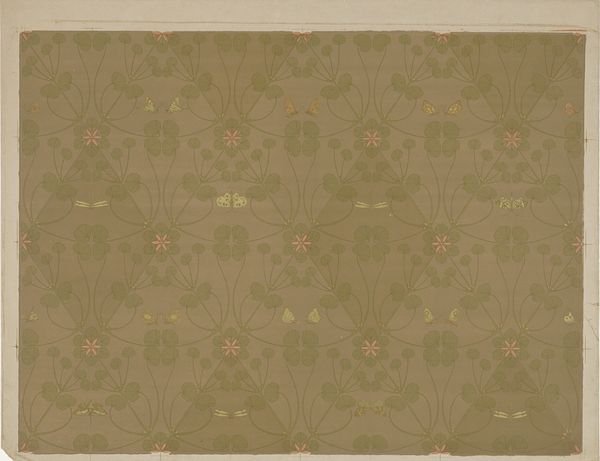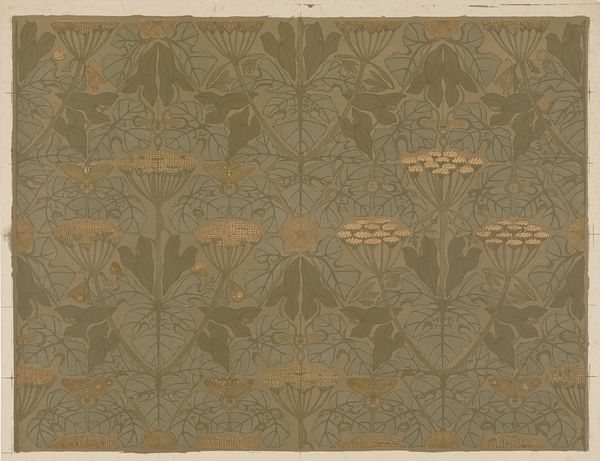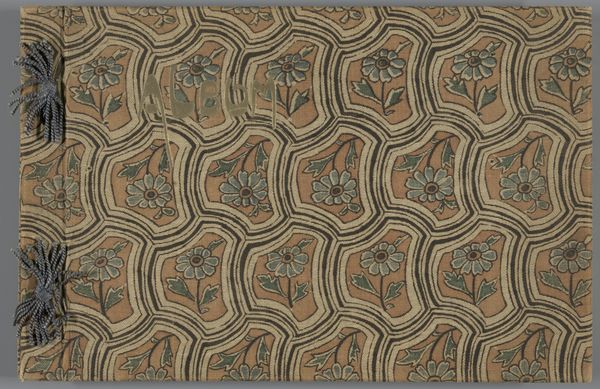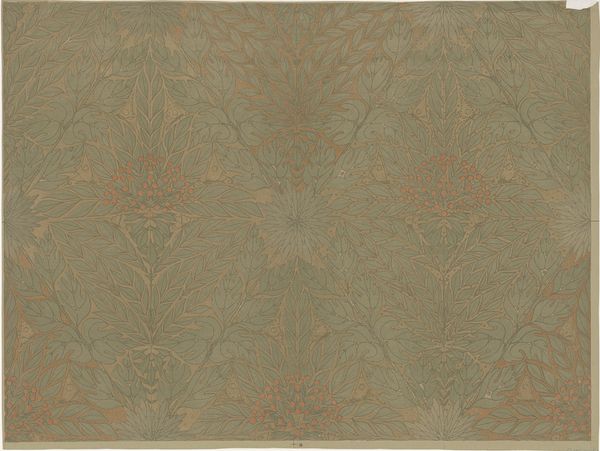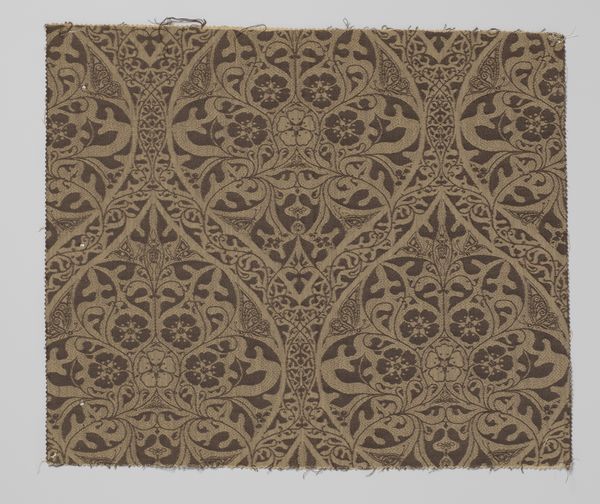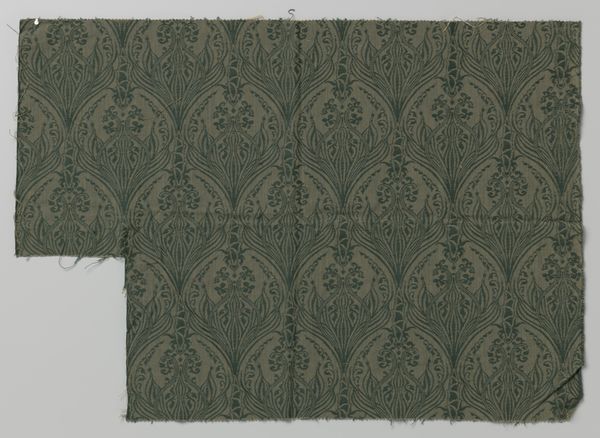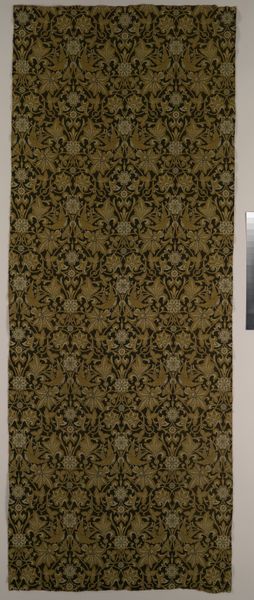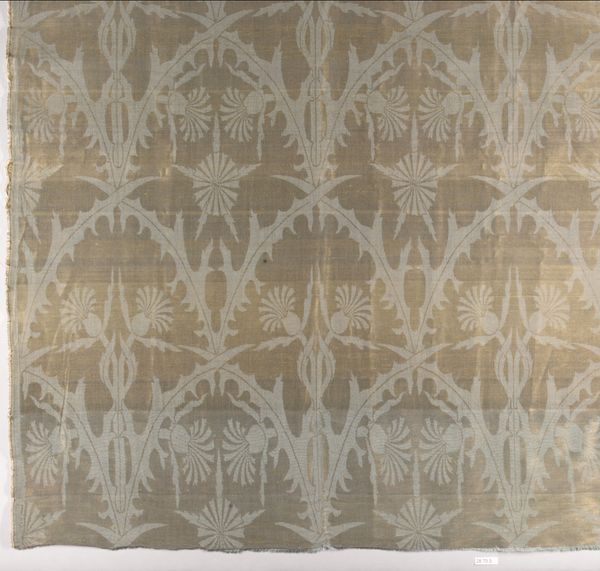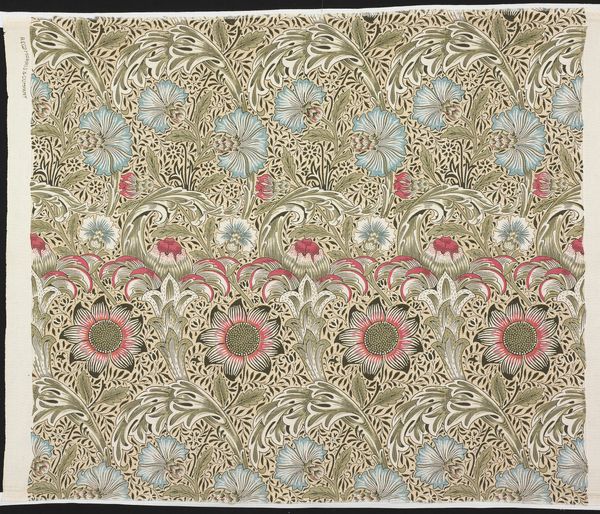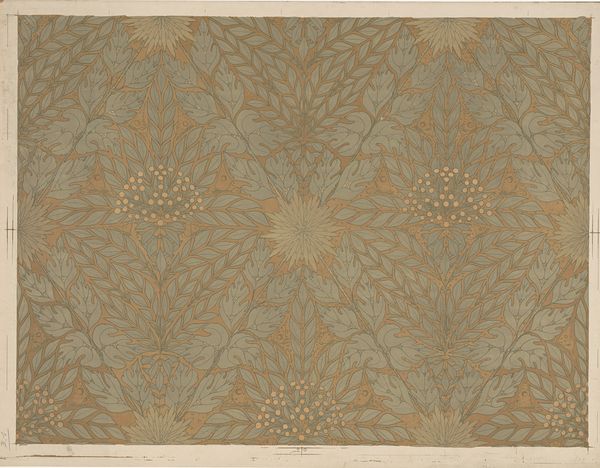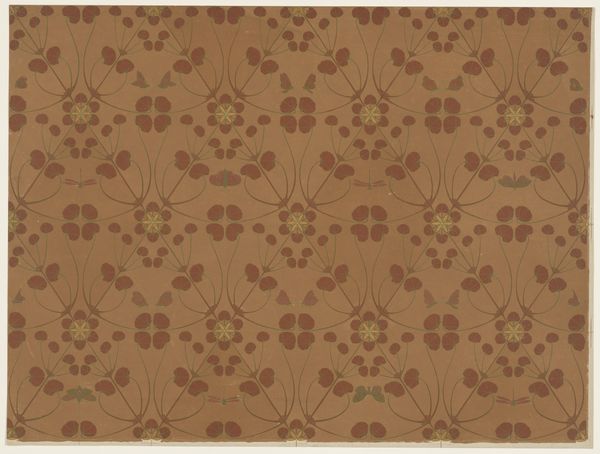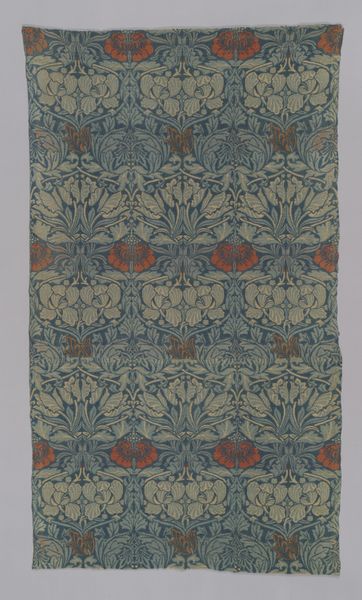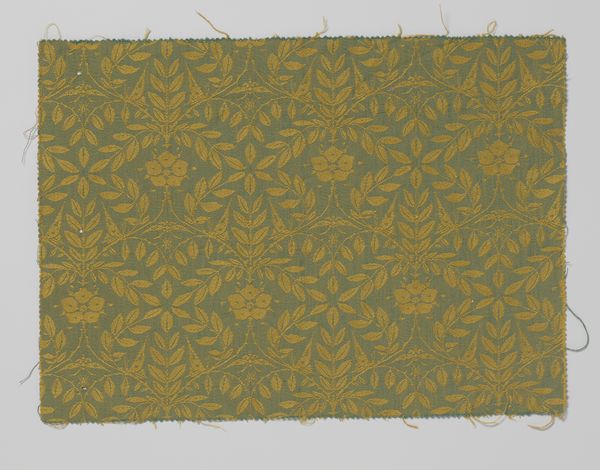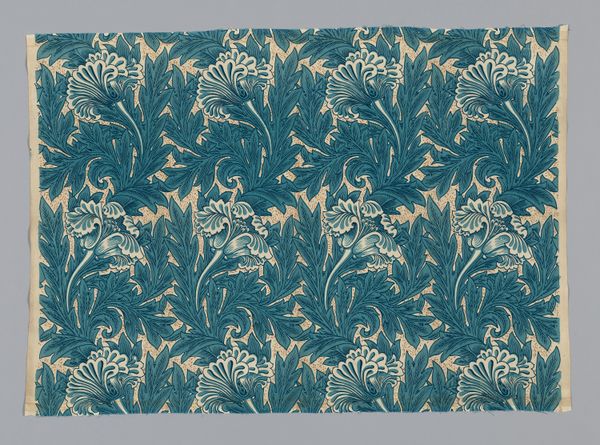
Sheet of Wallpaper with Umbellifers, Butterflies, and Dragonflies c. 1894
0:00
0:00
theonieuwenhuis
Rijksmuseum
drawing, paper, graphite
#
pattern heavy
#
drawing
#
natural stone pattern
#
naturalistic pattern
#
art-nouveau
#
flower
#
paper
#
pattern design
#
repetition of pattern
#
graphite
#
pattern repetition
#
textile design
#
imprinted textile
#
layered pattern
#
pattern work
Dimensions: height 625 mm, width 824 mm
Copyright: Rijks Museum: Open Domain
Theo Nieuwenhuis created this wallpaper design featuring umbellifers, butterflies, and dragonflies. The umbellifers, plants like Queen Anne's lace, evoke the fleeting beauty of nature. But look closer, and you'll notice that there's not a single Queen Anne's lace, but many, organized in a rhythmic symmetry. Consider how the butterfly, a symbol of metamorphosis, has fluttered through centuries of art and culture. In ancient Greece, Psyche, the soul, was often depicted with butterfly wings, representing the transformative journey of the soul. It reappears in vanitas paintings as a reminder of the transience of life. The presence of both butterflies and dragonflies infuses this wallpaper with a delicate tension, like a dream on the wall, reminding us of the eternal dance between life and death. These images stir something deep within us, connecting us to the symbolic language of our ancestors and the natural world.
Comments
rijksmuseum over 2 years ago
⋮
In 1906 the painter and graphic artist Willem Witsen had a room of his house on Amsterdam’s Oosterpark lined with this wallpaper. He chose the pattern with yellow umbellifers on a purple background. The receipts have been preserved and we know that Witsen ordered 200 sheets of paper at 25 cents a piece. Except for some discolouration, the wallpaper in this room is still intact.
Join the conversation
Join millions of artists and users on Artera today and experience the ultimate creative platform.
rijksmuseum over 2 years ago
⋮
Nieuwenhuis was a versatile decorative artist who designed furniture, carpets, wall coverings, and earthenware. In 1894 he drew wallpaper designs in three different patterns. The wallpaper with umbellifers, butterflies, dragonflies, and tiny ladybirds was available in six different colour combinations. It was printed on sheets measuring approximately 60 x 80 centimetres that had to be carefully matched up by the paperhanger.
